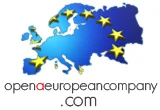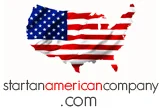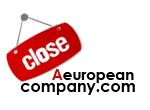Imagine launching your business without the stress of paperwork, delays, or the long wait for registration approvals. That’s precisely what a shelf company offers: an already registered, never-used business entity that’s ready to go when you are. Sitting quietly on the “shelf,” these companies come with zero liabilities and no trading history, just waiting for a new owner to bring them to life. Shelf companies were typically registered with a standard constitution, so buyers must make necessary changes to align with their business needs.
In today’s fast-paced world, time is money, and establishing a new business can be both time-consuming and tedious. Buying a Shelf Company 2025 is a shortcut to getting started immediately, as all the necessary legal formalities are already in place. Better yet, acquiring a company that appears established can instantly boost your credibility with clients, investors, and suppliers.
Whether you’re looking to hit the ground running or bypass bureaucratic delays, shelf companies are the most innovative way to start strong in 2025.
Choosing the right country for a shelf company purchase ensures a smooth business launch, regulatory compliance, and strategic advantages. In 2025, many entrepreneurs, investors, and global enterprises are turning to shelf companies to avoid time-consuming incorporation processes and achieve immediate operational capability.
Below, we break down the top 10 countries to buy a shelf company in 2025
United Kingdom
The UK remains a leading jurisdiction for businesses targeting European and global markets, known for its reliability and reputation. It could be one of the best options for you due to its strong legal system, broad access to banking, and high credibility, making it an ideal choice. Choosing a shelf company also helps eliminate several steps in the business formation process. Moreover, there is no need to undergo the lengthy name approval procedure, appoint directors, or tackle other initial incorporation tasks. This convenience allows owners to bypass the hassle of company formation and assists foreign investors who are unacquainted with the local incorporation process.
United States
The United States, particularly states like Delaware, Wyoming, and Nevada, offer flexible, cost-effective, and easily transferable shelf companies. Speaking of Delaware, it is globally recognized for its corporate law and business-friendly atmosphere. In addition, shelf companies in these states are ideal for start-ups, e-commerce businesses, and other ventures due to their minimal disclosure requirements and favorable tax conditions. While the US provides robust security and a business-friendly ecosystem, foreign owners should be cautious of federal IRS reporting requirements and state-specific legal nuances.
Singapore
Singapore is a prominent authority in Asia for owners seeking a shelf company with global credibility. It is also known for its stable political climate and exceptional financial services. Companies in Singapore are highly regarded in international business circles. Moreover, shelf companies in this region are typically newer, ranging from 1 to 2 years old, and offer substantial reputational value and access to regional markets. However, foreigners should appoint a local director, which service agencies may provide. The high regulatory norms and compliance expectations make Singapore an ideal place for businesses in fintech, logistics, and technology.
United Arab Emirates
The UAE has emerged as a global hub for shelf companies, offering 100% foreign ownership in several free zones and imposing zero corporate or income tax. It also provides an attractive package for all investors conducting international business. Additionally, shelf companies can be established in both offshore and free zone structures, presenting options that include banking and nominee services. This jurisdiction is particularly well-suited for crypto businesses, trading companies, and logistics providers.
Hong Kong
Hong Kong has been on the rise and continues to purchase shelf companies due to its open economy, common law framework, and proximity to China. Companies added here can enjoy low taxes, no VAT, and a zero-tax regime on foreign income. Note that shelf companies are conventionally between 1 and 5 years old and can be set up quickly. Additionally, it is one of the best locations for trading companies, IP holders, and finance-related firms.
Switzerland
Switzerland offers a premium option for those seeking to launch an established company with unparalleled financial credibility. It is also recognised for its political impartiality and robust banking sector. These companies are utilised for asset protection and high-level wealth management. Although they come at a steep price, they are highly valued and often include a Swiss address and an older incorporation date. Furthermore, compliance requirements are high, and companies must adhere to stringent due diligence processes, making it a better-suited location for businesses with specific and long-term operational objectives.
Estonia
Estonia has established a unique position as a digital-first jurisdiction, making it an excellent choice for tech-savvy entrepreneurs. However, its e-residency program allows for complete online company management, including the acquisition of existing companies. Numerous Estonian shelf companies are relatively young, yet they also benefit from the advantages of digital efficiency, low maintenance costs, and a corporate tax regime that favours reinvestment.
Belize
Belize is recognised as one of the premier offshore jurisdictions offering full tax exemption and high levels of confidentiality. Most international companies are low-cost, instantly transferable, and require no public disclosure of shareholders or directors. These features also make this country the best choice for offshore asset protection and investment holding. However, due to global de-risking and stricter AML regulations, Belizean entities may encounter limitations when opening bank accounts or conducting business with Western institutions.
British Virgin Islands
This country is a reputable offshore jurisdiction for obtaining a shelf company. It offers the benefits of tax neutrality, privacy, and a well-maintained legal framework. Additionally, aged shelf companies are readily available, making them suitable for use as special purpose vehicles (SPVS), investment holdings, or cross-border planning entities. Rather than facing intense international pressure on offshore centres, the BVI continues to uphold a sustainable regulatory system. However, owners are required to comply with economic substance rules and updated UBO disclosures.
Cyprus
Cyprus is a strategic jurisdiction offering EU membership benefits, favorable tax laws, and an English-speaking environment. VAT-registered shelf companies, often several years old, are ideal for EU operations and double tax treaty networks. With a 12.5% corporate tax rate and international banking access, Cyprus attracts holding structures, trading businesses, and IP licensing firms. Compliance involves local audits and substance requirements, yet the jurisdiction remains competitive and functional.
Key Factors to Consider Before Buying a Shelf Company Worldwide
It is crucial to know and consider some things before you start the process:
Higher Costs
When it comes to shelf companies, you already enjoy the ease of the process, as everything is already formed. Therefore, you can expect to pay more compared to starting from scratch.
No Trading History
Shelf companies mean that everything has already been incorporated, so they ultimately have no financial history that could help with obtaining credit or investment.
Legal & Compliance Problems
Before purchasing a shelf company, it is essential to conduct thorough research. Some providers may sell companies that were previously used and may carry unknown liabilities or compliance issues. Therefore, you must verify whether the company has been trading and that all necessary filings are up to date with Companies House.
Make Necessary Updates
When you buy a Shelf Company 2025, you must update the company’s records with the new director and shareholder information. This ensures that the legal ownership has been transferred to you correctly.
Poor Branding
It is to be noted that the pre-approved company might not align well with your company’s branding. However, it is recommended to take the necessary steps accordingly.
Tax & Legal Considerations
One thing to keep in mind is that purchasing a shelf company worldwide does not alter your tax and legal obligations, which you are still required to fulfill. Once you begin trading, the standard UK tax rates apply to you:
Corporate Tax
Shelf companies are typically inactive before they are sold, ensuring they have no past corporation tax liabilities.
VAT Considerations
Shelf companies generally are not pre-registered for VAT. If your business turnover is more than the VAT registration threshold (£90,000) or if you voluntarily choose to register, you would be required to apply with HMRC once you make the purchase.
Payroll
If you plan to hire additional staff, you will be required to register for PAYE with HMRC.
Transfer of Ownership
Transferring shares legally requires you to complete a stock transfer form. Moreover, you are supposed to update Companies House with new directors, shareholders, registered addresses, and potentially the company name.
AML
AML, or Anti-Money Laundering, primarily focuses on identity verification, which is required in the UK for new directors and persons with significant control (PSCS). Furthermore, shelf companies undergo the same anti-money laundering checks as any other newly formed company.
Final Thoughts
Purchasing a shelf company in 2025 offers a powerful advantage for entrepreneurs and businesses seeking a fast, hassle-free way to establish a corporate presence. With legal structures already in place and no prior trading history, these ready-made entities provide a head start—saving time and creating an impression of maturity and reliability. However, this convenience comes with responsibilities. Prospective buyers must remain vigilant about compliance, update all legal records, and understand the tax and operational obligations that follow ownership transfer.
While shelf companies can be a smart launchpad for your business, success ultimately depends on diligent research, proper due diligence, and strategic planning. By making informed decisions and aligning your shelf company with your vision, you can confidently step into the marketplace with a solid foundation and a strong head start.




